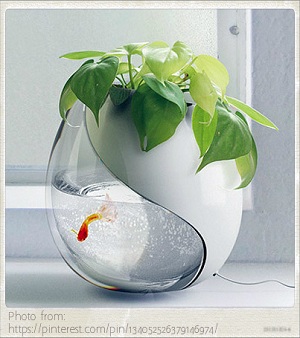What are the signs that your betta fish is suffering from betta swim bladder disorder?
Bloated underbelly.
No fish droppings in the tank.
Betta swim bladder disorder is your fish's inability to maintain itself in an upright position, due to an enlarged swim bladder caused by constipation.
The most common cause of betta swim bladder disorder is overfeeding. Betta fish are highly sensitive to overfeeding.
Your betta fish's stomach is only about the same size as one of its eyeballs. That typically equals about 2 to 3 pellets or at most 3 to 4 bloodworms. Feeding them not more than this much, one or two times a day is all your betta needs in order to stay healthy. Many people tend to make the mistake of feeding their bettas more than twice a day, and pouring too much food into the fish tank all at once, mistakenly believing their betta fish to be hungry or out of worry that the fish is being malnourished.
Whatever you do, you must not "feel bad" for your fish. Your betta is not starving!
The simplest way to cure this disorder is to let your betta fast for an entire day. This will not harm your betta. In fact, even if your fish isn't constipated, it is recommended to let your fish go without food for at least once a week. This aids in cleansing its digestive system naturally. Oftentimes just doing this itself will cure the constipation and cause this condition to recede.
You rescued your betta's life from the pet store's tiny cup. Now you must learn how to make your betta into the most comfortable, safe, and cared-for fish in the world. If you are a true betta fish lover or animal enthusiast in general, then you should know that taking care of betta fish involves a great deal more than just doing the bare minimum, which is to change its water and feed it. There is a lot more involved in properly caring for your fish, such as water quality, water temperature, the nature of the fish's habitat in terms of volume of space, rocks, plants, lighting conditions, whether or not you wish to breed your fish, and your fish's social interactions with other fish versus being kept in isolation. If you want to keep your fish healthy, beautiful, active, energetic, and alive for as long as possible, then you have to be willing to go the extra mile in order to provide a better quality of life for your fish. And it all starts with a little bit of education.
Taking care of betta fish can truly be an extremely rewarding experience, so why not go the extra mile and learn everything that there is to know about the proper care, feeding, and nurturing of our little marine friends, the betta splendens (otherwise known as siamese fighting fish)?
Who else wants a beautiful, healthy betta fish, swimming happily in a stunning tank, without having to spend a bundle or constantly worry about your betta's health?

 Introduction To Of Some Lower Cholesterol Foodstuffs
Cholesterol is a fat-like element contained in the physique
Introduction To Of Some Lower Cholesterol Foodstuffs
Cholesterol is a fat-like element contained in the physique
 Starting Up An Aquaponics Set Up From See The Easy Way
Planting seeds in your aquaponics system can be a lot simpl
Starting Up An Aquaponics Set Up From See The Easy Way
Planting seeds in your aquaponics system can be a lot simpl
 The Simplest Way To Lessen Your High Cholesterol By Natural Means
High-cholesterol is a major variable inside the countrywide
The Simplest Way To Lessen Your High Cholesterol By Natural Means
High-cholesterol is a major variable inside the countrywide